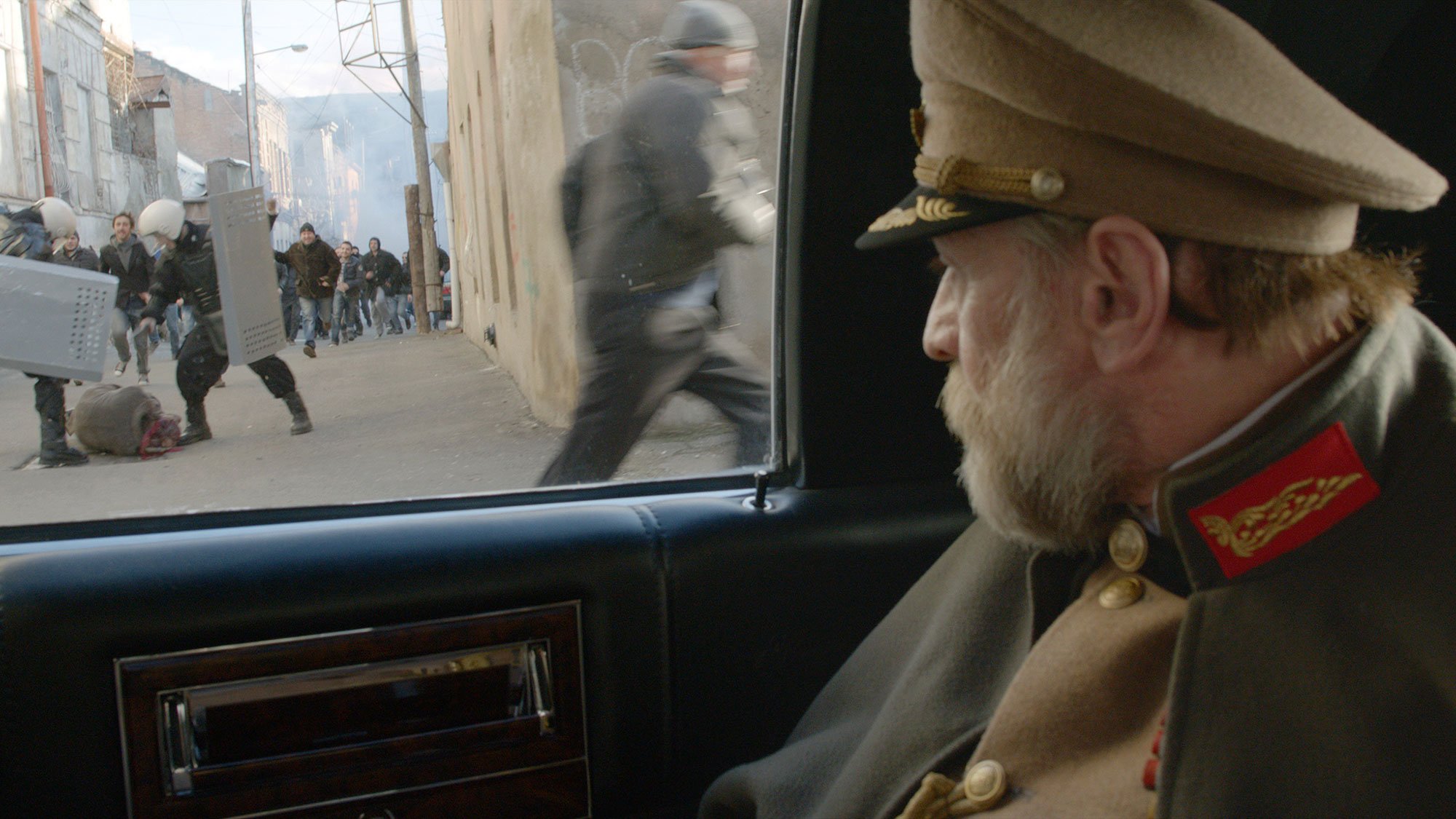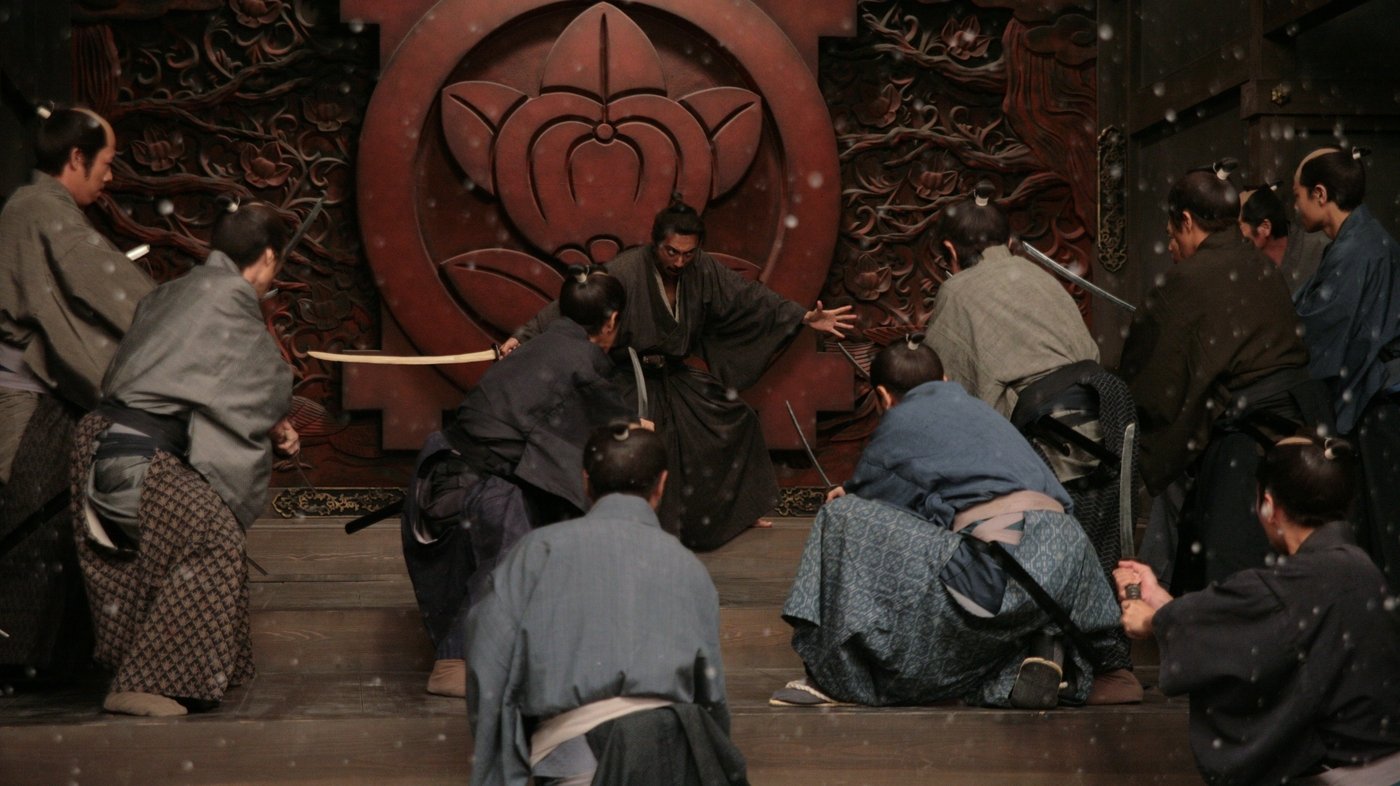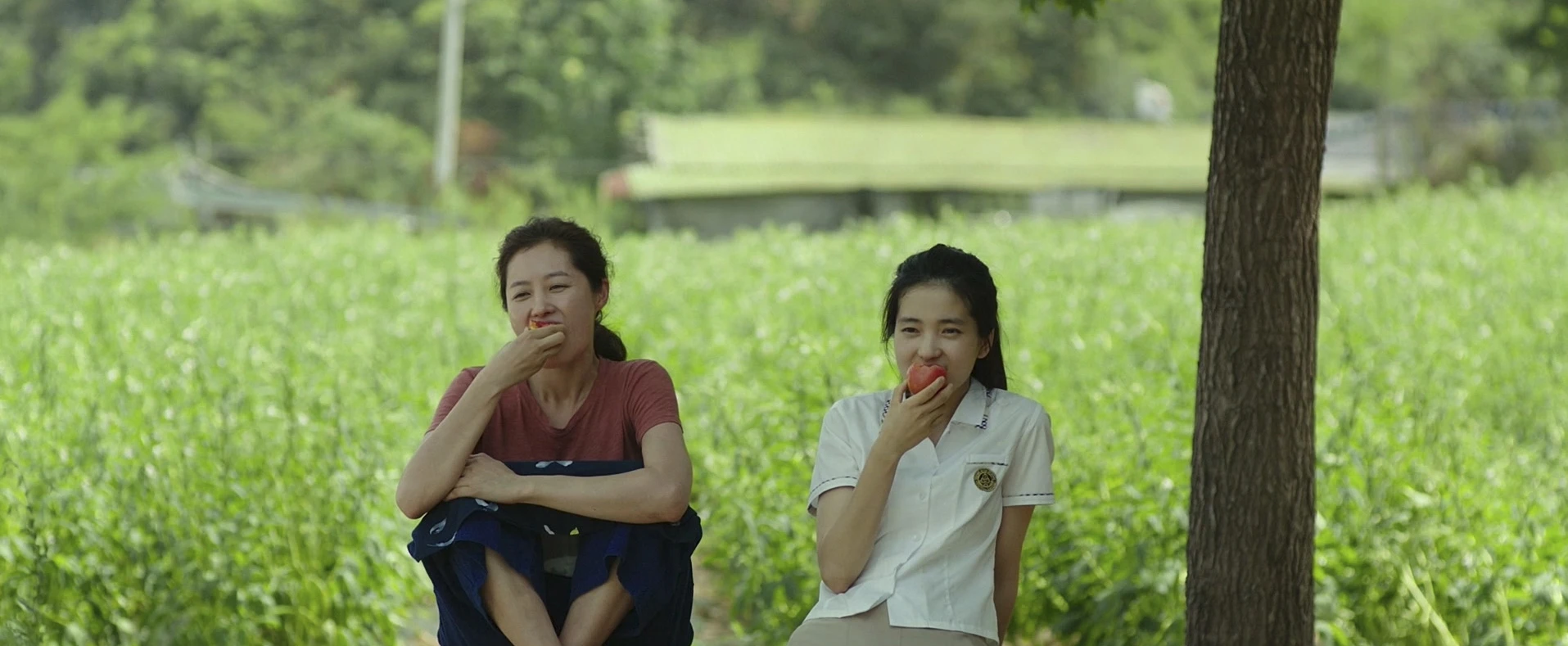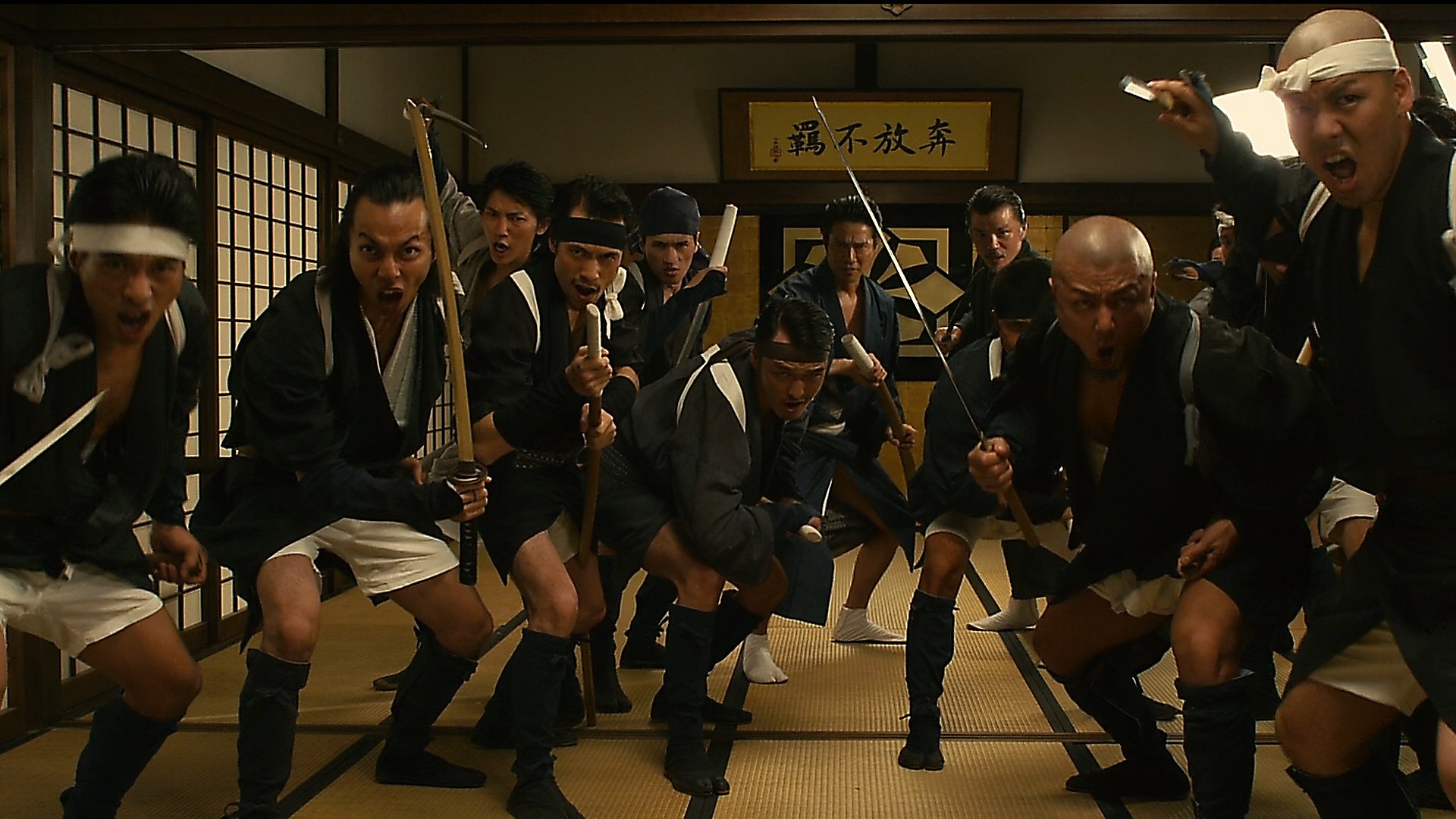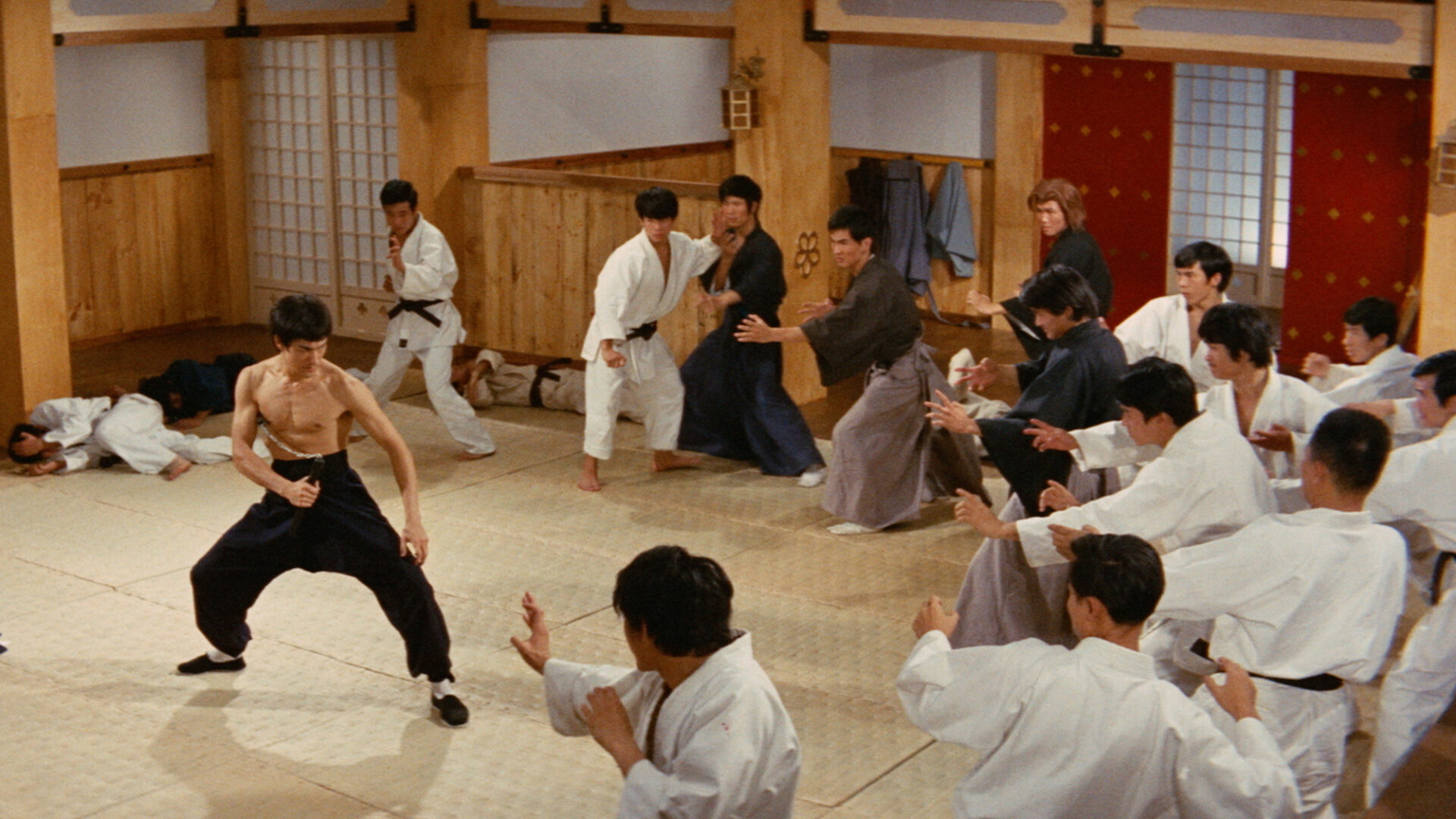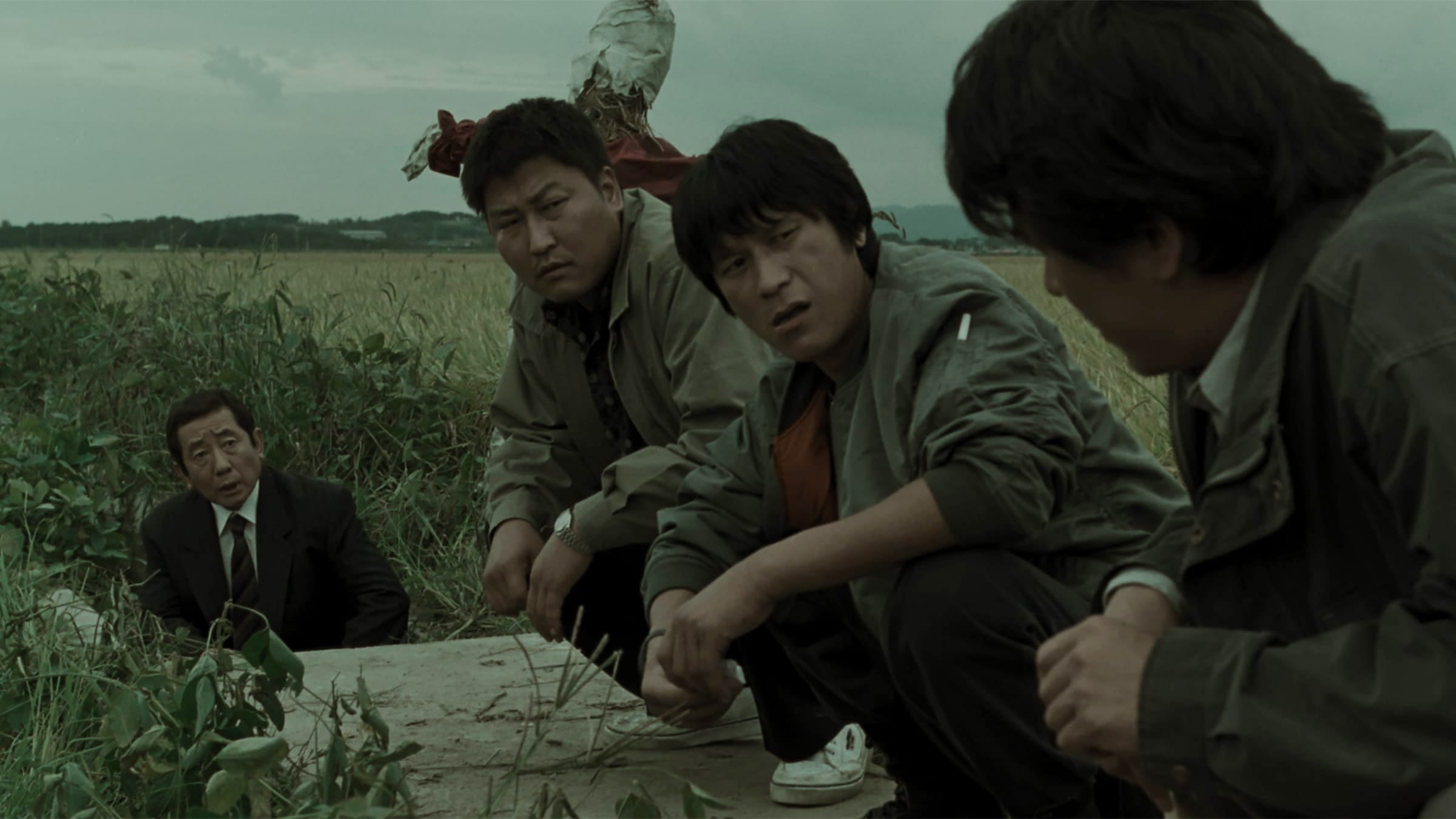
100 Best Foreign Movies on Hoopla Right Now
May 7, 2025
Share:
Being linked with your library card, Hoopla is better known for its audiobooks. However, avid readers might be surprised that Hoopla provides access to plenty of classic films for free, as long as you have your library card or university log-in.
What’s great about Hoopla is that the selection isn’t just limited to Old Hollywood movies– Hoopla also includes plenty of foreign films in their library as well. We’ve previously listed the best movies on their platform, but if you’re looking to watch something outside your comfort zone, here’s the same list, but with foreign films.
Read also:
91. The President (2014)
Genres
Director
Actors
Moods
When the country rises in rebellion against your dictatorial rule, we imagine that could be quite difficult. After a series of failures and atrocities committed to keep power, no one in the world would empathize with the dictator in question. Doing exactly this, however, made for a striking movie in The President. Never naming an actual country, but based generally on real world revolutions, the film plucks a dictator and his grandson into the poverty that his regime has inflicted upon its people. It’s quite cathartic to see the two reap the karmic consequences of what the dictator has done, but it’s also thought-provoking, as the film straightforwardly demonstrates the way revolution eventually takes cyclical form, especially for the movements that allowed the very atrocities they sought to end. It’s not a film with an easy-to-match metaphor, though, given the production country and the director Mohsen Makhmalbaf’s home country, one could guess certain influences, but The President nonetheless is a striking portrait of a city violently changing hands.
92. Hara-Kiri: Death of a Samurai (2011)
Genres
Director
Actors
Moods
Given that it is a modern day, colored film remake of a classic, Hara-Kiri: Death of a Samurai was always going to be compared to the 1962 film, especially since it’s considered one of the greatest Japanese films of all time. Admittedly, there’s not a lot added aside from the 3D filming, and for fans of director Takashi Miike, the remake is much more restrained than his other films. However, Nobuyasu Kita’s cinematography is striking, Ryuichi Sakamoto’s score is impeccable, and the performances still deliver on the film’s contemplation of honor, sacrifice, and the self-interest of the elite. Hara-Kiri: Death of a Samurai doesn’t compare to the classic, but it’s nonetheless a decent introduction for the generations that missed the original story.
93. Little Forest (2018)
Genres
Director
Actors
Moods
At first, Little Forest seemed to just be a gentle film extolling the beauty of the countryside. Many a story has been based on that idea, and sure enough, the film does have aesthetic, gorgeous shots of the orchard, the lake, and the garden Hye-won ran back to, albeit with much more delicious food making scenes. But, as we get to learn more about her, the script subtly unfolds to reveal a personal family drama at the center. Moving back home, therefore, isn’t just to take a vacation– it becomes a meditative break for Hye-won to recreate, and thus, understand the choices her mother made, and it becomes a potent reminder of not just the pain, but also the good things that she left behind. Little Forest has plenty of the familiar countryside virtues of self-sufficiency, mindfulness, and community, but it approaches these themes in a more compelling way.
94. Tuvalu (1999)
Genres
Director
Actors
Moods
Tuvalu is a pretty weird film. It’s definitely inspired by old silent expressionist films– Barely anyone speaks in it, the scenes play out in a variety of sepia tones, and the expressions everyone takes are hyper-exaggerated– but it’s the plot points that can feel cryptic and loopy for some viewers, considering the wacky ways Anton improvises some quick fixes for the pool. It’s because of this that the film won’t be for everyone. However, cinephiles looking for something outside the mainstream fare might enjoy Tuvalu, because the strange plot is depicted through interesting frames shot in the beautiful sets of the dilapidated pool, in a unique style that most viewers would rarely see today. Tuvalu is eccentric, but it’s not bad, and no one can deny its originality.
95. Mambar Pierrette (2024)
Genres
Director
Actors
Moods
If given the outline of this film, it might be easy to just call it poverty porn. But there’s a genuineness to Mambar Pierrette that keeps this film from sliding into melodrama, a certain subtlety that captures the everyday life in Douala, Cameroon. Filmmaker Rosine Mbakam, who made her start through documentary films, brings her naturalistic style here, placing the titular seamstress front and center as she responds to each and every difficulty that comes her way. And as the flood comes, and so too her troubles, Pierrette Aboheu Njeuthat shines with a subtle charisma, a performance full of dignity for the titular single mother that carved out a life through her craft. Mambar Pierrette might have a familiar neo-realist story, but it’s done well due to its excellent balance.
96. Heidi (2015)
Genres
Director
Actors
Moods
Where The Secret Garden championed the restorative powers of tending to a garden as well as one’s thoughts, Swiss novel Heidi touched on similar themes a few decades before, celebrating instead the natural beauty of the Alps mountainside, and the titular character bringing back joy and hope to her family. The film remains faithful to the novel, playing out the book’s events with a more sleek look and even more stunning landscapes of the Swiss Alps. While previous generations would inevitably compare the version of their time to this latest version, 2015’s Heidi is a decent adaptation, recreating the classic tale for today’s kids.
97. Why Don’t You Play in Hell? (2013)
Genres
Director
Actors
Moods
Sure, it takes a special type of crazy to try to make it in the movies, especially if you’ve been at it for ten years without any sort of premiere, but the strangely persistent four-man production of Why Don’t You Play in Hell? takes this to even crazier heights, involving a yakuza gang war and potentially their lives. Writer-director Sion Sono infuses his signature gore with much more playful comedy, slinging together chaotic action scenes through the pure power of cool, and the entire roster’s enthusiasm for cinema is just so infectious, it’s compelling to watch, even when the plotlines don’t fully mesh well. Why Don’t You Play in Hell? is such a fun tribute to gritty action filmmaking.
98. The Mole Agent (2020)
Genres
Director
Actors
Moods
Going deep undercover, integrating one’s self into a group without any suspicion, and passing out information to another party… That’s the job of a mole. While they mostly lurk in various government agencies, laboratories, and other special circles of power, The Mole Agent instead goes deep undercover in a Chilean retirement home, having stakes that may not be world-ending, but take more personal, domestic weight as Sergio befriends the residents, records and reports on their well-being, and tries to figure out what exactly Romulo wants as evidence. It’s a funny situation, one that depicts the resident home with warmth, albeit with the occasional spy cams and an old-fashioned piano score, but it can be difficult to figure out where the line is between truth and fiction, as some scenes can feel a bit staged. Still, The Mole Agent is a charming portrait of old age, made so compelling with director Maite Alberdi’s unusual perspective.
Read also:
99. Fist of Fury (1972)
Genres
Director
Actors
Moods
Alternatively known as The Chinese Connection due to a translation error, Fist of Fury was the second of Bruce Lee’s leading roles in Hong Kong, this time taking his fists to 1900s Shanghai. As Chen Zhen, fictional apprentice of the real life Jingwu School, Lee fights against the rival Japanese dojo after the death of his master, asserting the honor of his Chinese kung fu school in the face of the foreign occupation. It’s this foundation that sets the stage for Bruce Lee’s fight choreography, delivering spectacular action sequences that are impossible to duplicate in the service of vengeance and justice. It was through this film, and his other Hong Kong features, that Bruce Lee bridged east and west, setting the new standard for martial arts cinema all over the world.
100. Memoir of a Murderer (2017)
Genres
Director
Actors
Moods
Not to be confused with a similarly titled Japanese film, Memoir of a Murderer is an intense mindbender of a thriller. Like a cross between Memento (2000) and Seven (1995), the film follows a serial killer with Alzheimer’s, who starts to question his memory when a series of killings occur in the small town he lives in. The non-linear narrative helps recreate the sense of disorientation and confusion the lead experiences, racketing up the suspense, and pushing the audience to keep guessing each time the film goes through each of its twists and turns. This unique storytelling was why it’s one of the many films that popularized South Korean thrillers, becoming the first film in the country to get two million tickets sold.
Comments
Add a comment
Ready to cut the cord?
Here are the 12 cheapest Live TV streaming services for cord-cutting.
More lists
Lists on how to save money by cutting the cord.
Curated by humans, not algorithms.
© 2025 A Good Movie to Watch. Altona Studio, LLC, all rights reserved.
